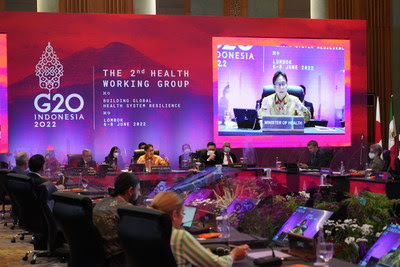Six First Place Winners Selected from Thousands of Global Photo Submissions Surrounding 2022 Theme Revitalization: Collective Action for the Ocean
New York, New York, June 08, 2022 (GLOBE NEWSWIRE) — The winners of the ninth annual United Nations World Oceans Day Photo Competition were announced today during the United Nations World Oceans Day (UNWOD) 2022 event at the UN Headquarters in New York. The free competition, which launched this past March, explored the six thematic categories linked to the overarching 2022 World Oceans day theme: “Revitalization: Collective Action for the Ocean.” World-renowned judges including wildlife photographer Rathika Ramasamy, Conservation Photojournalist & Marine Biologist Sirachai Arunrugstichai, and Underwater Photographer Y. Zin Kim, selected first, second, and third place winners for the categories: Above Water Seascapes, Underwater Seascapes, Revitalization, Coastal Communities, Ocean Critters, and Nature-Based Solutions & Ocean Exploration. Winners were selected from the thousands of global entries made by both amateur and professional photographers. The United Nations World Oceans Day event and the Photo Competition are hosted by the United Nations Division for Ocean Affairs and the Law of the Sea, produced with the contribution of Oceanic Global and made possible by La Mer. The annual competition is curated by Ellen Cuylaerts, and coordinated with DivePhotoGuide (DPG) and the Intergovernmental Oceanographic Commission of UNESCO.
Winning Photos Per Category & Corresponding Captions Can be Viewed Here.
* All photos must include the caption with photographer credit listed per photo, as well as www.unworldoceansday.org to be published.
The 2022 winning photographers hail from over 12 different countries. Their names include: Cao Nguyen Vu, Christophe Mason-Parker (Above Water Seascapes), Damir Zurub, Nat Sumanatemeya, Nicolas Hahn (Underwater Seascapes), Rick Morris, Nuno Vasco Rodrigues, Aunk Horwang (Revitalization), Celia Kujala, Amitava Chandra, Supachai Veerayutthanon, (Coastal Communities), Gaby Barathieu, Jennifer Johnson, Viktor Lyagushkin (Ocean Critters), Tom Vierus, Giacomo d’Orlando (Nature-Based Solutions & Ocean Exploration). All participants signed a Charter of 14 commitments regarding ethics in photography.
The United Nations World Oceans Day Photo Competition is an ongoing tradition that calls on photographers and artists from around the world to communicate the beauty of the ocean and the importance of the respective UNWOD themes each year. Winning photos from past years can additionally be seen at www.unworldoceansday.org.
Attachment
Rizzi Stigliano Oceanic Global 631-241-0398 press@oceanic.global






